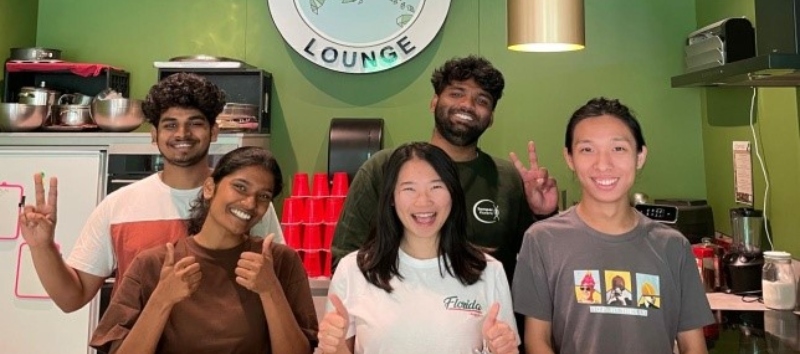Any student from outside the European Economic Area (the EU plus Liechtenstein, Norway and Iceland) who wanted to become a student assistant used to face loads of obstacles, the biggest of which was that people were unaware that employing a non-EER student was even possible. Now, WUR is trying to make this option easier for this group with a new policy.
Nienke Raeven of Education and Student Affairs explains: ‘Working as a student assistant is an excellent way to gain experience during your studies. The fact that this was all but impossible for non-EER students is unfair. Hence, a task force was formed a while ago to address this issue.’
One of the obstacles for WUR teams wishing to hire a non-EER student as a student assistant is the need to apply for a work permit from the Employee Insurance Administration Agency (UWV). ‘Actually, there are three obstacles’, says Raeven. ‘A permit takes five to eight weeks and costs 545 euros. In short, extra organisational efforts, extra costs, and a longer wait to appoint a non-EER student. This caused many to think that appointing a non-EER student was impossible. ‘Now the Executive Board is making money available that will at least eliminate the financial obstacle. The application, which is done via HR, will still take just as long.
More inclusive
The aforementioned task force designed a plan last academic year, which it presented to the executive board. ‘The board has made funds available to cover the costs of permits’, Raeven states. ‘That has taken care of a major obstacle, as applying for the permit is a job that WUR’s HR department takes care of. Teams and departments need only apply with the HR department, which then follows up. A timely application is still of the essence, as the process still takes between five and eight weeks.’
To ensure that more people within WUR are made aware of the fact that they can employ non-EER students as student assistants, Education and Student Affairs is currently working on infographics that will explain how to appoint non-EER students. Raeven: ‘We aim to encourage chair groups and other teams to include non-EER students in their recruitment so that this group is not ignored and WUR becomes more inclusive.’
Work experience
Komal Yadav (30), a master’s student in Medical Biotechnology from India, recently started working as a student assistant in the Student Social Safety group. ‘I help organise challenges related to social safety, for example, micro-aggression and how to be an active bystander. It is a great way to get some working experience.’
Yadav also contributes to developing an infographic to inform non-EER students on how they may become student assistants. ‘When I applied, it took quite some time to figure out what needed to be organised. It is not a difficult process, but some aspects do require attention. The most critical is to ensure you have the right health insurance. You may need to switch. I also recommend applying some two months before the student assistant positions become available because of the time it takes to get things organised. I hope the infographic will make the application process easier.’
The infographics (for non-EER students and for WUR teams) will soon be circulated through the intranet, MyWURToday, Career Services and other channels.

 Student assistant Komal Yadav. Private pphoto
Student assistant Komal Yadav. Private pphoto 

